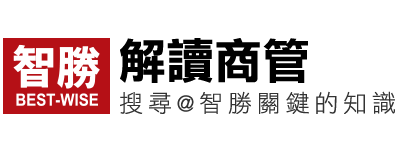Hot News
| 中文篇名 |
團隊熬夜工作要求對團隊績效究竟是利是弊?團隊目標承諾之干擾效果及負向團隊情感氛圍與團隊成員愉悅程度之中介效果 | |
|---|---|---|
| 英文篇名 |
Does Team Work Late at Night Increase or Decrease Team Performance? The Moderating Effect of Team Goal Commitment, and the Mediating Mechanisms of Negative Group Affective Tone and Team Enjoyment | |
| 作者 | ||
| 中文摘要 |
為完成團隊任務而熬夜工作是團隊經常面臨的挑戰,卻鮮有研究專注團隊熬夜工作對團隊產出的影響。本研究以團隊層次的工作要求—資源模式為基礎,檢視團隊成員因為團隊工作要求而熬夜時,在以團隊目標承諾作為一種團隊內資源的情況下,負向團隊情感氛圍與團隊成員愉悅程度兩種機制是否會影響團隊績效與團隊創造力。本研究蒐集47組學生專案團隊作為樣本(共47位組長及127位團隊成員,共174人),結果發現:一、當團隊成員對目標承諾低時,團隊熬夜工作要求會透過增加負向團隊情感氛圍,進而降低團隊績效;二、當團隊成員對目標承諾高時,團隊熬夜工作要求會透過增加團隊愉悅程度,進而提高團隊績效。最後,本研究依據研究結果提供理論與管理意涵。 | |
| 英文摘要 |
Engaging in late-night work to meet job demands is a common challenge faced by teams. However, there remains limited discussion regarding late-night work as a team job demand. This study applied the team-level Job Demands Resources Model to explore how team goal commitment, considered a job resource, moderates the relationship between the team late-night job demands and both the group’s negative affective tone (NGAT) and team enjoyment. Additionally, we investigated whether NGAT or team enjoyment mediates these moderating effects. Our dataset comprised 47 project-based student teams, including 47 team leaders and 127 team members, in total 174 participants. The findings revealed that: (1) low team goal commitment exacerbates NGAT due to team late-night job demands, subsequently adversely affecting team performance; (2) high levels of both the team late-night job demands and team goal commitment motivate team members to achieve goals, enhancing team enjoyment, and subsequently improving team performance. Finally, this study offers theoretical and managerial implications based on the research findings. | |
| 關鍵詞 |
負向團隊情感氛圍、團隊目標承諾、團隊成員愉悅程度、團隊熬夜工作要求、團隊績效、negative group affective tone (NGAT)、team goal commitment、team enjoyment、team late-night job demands、team performance | |
| 刊名 | ||
| 期數 | ||
| 起訖頁 |
099-150 | |
| 出版單位 | ||
| DOI | ||
| QRCode |
| |
| 上一篇 |



